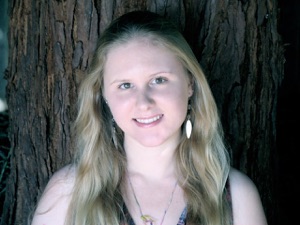
New Focus FCR 210
Duo Noire consists of Thomas Flippin and Christopher Mallet. These guitarists are graduates of the Yale School of Music. For this, their debut album, they have chosen to feature a program of all women composers. Add to that the fact that these fine emerging artists are African-American (also the first African American graduates of Yale School of Music) and you have a glorious celebration of gender/cultural diversity as well as some mind blowing compositional efforts ably handled by these visionary musicians.

The demographics are necessarily prominent especially in these contentious times when racial and gender discrimination are, sadly, huge and difficult issues that remain largely unresolved. But the real story here is creative music and musicians. This duo seems to have a unique sound and are clearly schooled in their instruments to the point that they even seem to be expanding the very possibilities of a guitar duo. Above all this is an intelligent album.
The composers Clarice Assad (1978- ), Mary Kouyoumdjian (1983- ), Courtney Bryan (1982- ), Golfam Khayam (1983- ), Gity Razaz (1986- ), and Gabriella Smith (1991- ) are mostly unfamiliar names to this writer and, likely, to most listeners. But don’t let that put you off. This is a highly inventive set of compositions and these performers are doing the job of discovering these compositional talents.
There on six compositions on this thirteen track CD which has over an hour of music on it and it appears to be a landmark release for identifying new composers contributing to the guitar duo genre. Guitar duos are not an unusual instrumental grouping but this collection suggests fresh new directions that extend the possibilities of this instrumental configuration.

Clarice Assad
Of course the guitar duo is hardly a new idea. On the more pop side we have had Les Paul and Mary Ford and on the classical side many listeners will be familiar with Sergio and Odair Assad. And that brings us to Clarice Assad who is the daughter of Sergio Assad. Her composition, Hocus Pocus (2016) is in three movements, each ostensibly describing an aspect of magic. Clearly Assad is familiar with both traditional and extended techniques of composition for guitar. This is a sort of impressionistic work which calls upon the musicians to utilize a variety of techniques to evoke moods and images of each of the three movements, Abracadabra!, Shamans, and Klutzy Witches.

Mary Kouyoumdjian
Byblos (2017) by Mary Kouyoumdjian embraces her Persian roots as well as the conflicts which have plagued this area of the world. Here she is evoking an ancient town in Lebanon. This is the most extended single movement on the disc and demonstrates the composer’s mastery of form while it challenges the instrumentalists to evoke the ancient and mystical sounds of her classical culture.

Courtney Bryan
The only African-American composer featured on this recording is Courtney Bryan. Her “Solo Dei Gloria” (2017) which was commissioned by Duo Noire takes the listener on a sonic journey through the composer’s impression of the inner process of prayer. That’s a mighty abstract concept and she manages accomplish it with just the two guitars (and, of course, two talented musicians).
The three movement, “Night Triptych” (2017) was also written for Duo Noire and has the honor of being the title track for this truly eclectic and innovative album. This has more the feel of an abstract musical work than the others featured but one does hear the influences of her ethnic origin (Persian/Iranian). Despite the more extended nature of this composition this work, like all the works presented here, is a sampling of the composer’s work and the astute listener will have many reasons to seek out more of this young composer’s work.

Golfam Kayam

Gity Razaz
Four Haikus (2017) was also written for Duo Noire. This Iranian born composer is rapidly becoming established internationally as an accomplished composer. Like the previous work these four short movements are of a more abstract nature. Another sampling that will prompt listeners to seek out more of this emerging composer’s work.

Gabriella Smith
Last but not least is the second most extended work here by the youngest of the composers represented. “Loop the Fractal Hold of Rain” (2017) is another Duo Noire commission. This is probably the most abstract and modern composition on the disc.
Many works here have at least the suggestion of dealing with politics, conflict, and the impact of such things on individuals.
It is admittedly unusual (though clearly not risky) to program compositions by all women composers. This is a wonderful collection with performances that are incisive and intriguing enough to leave their listeners wanting more. This is a group to watch/listen to.





